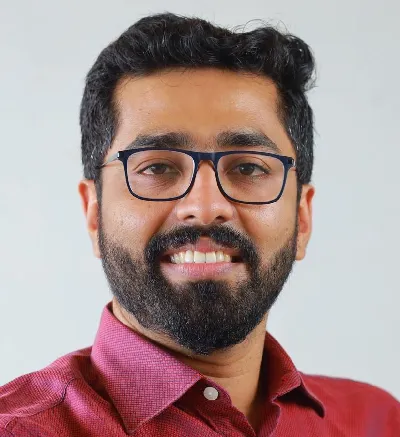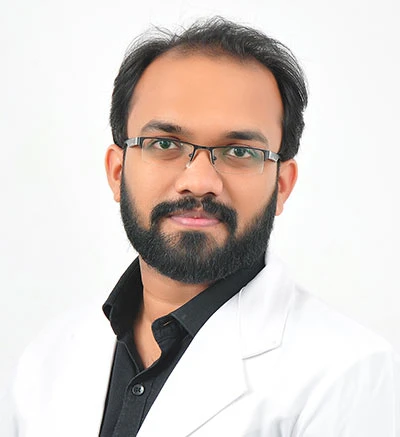select department
The Department of Critical Care at Starcare Hospital is incorporated with medical devices to offer world-class 24*7 critical care treatment to patients suffering from serious illnesses. At our hospital, a team of doctors, surgeons, and nurses are trained to diagnose and perform surgery pre-procedures that aid the patient to get emergency care at the earliest. Critical Care department at our hospital is incorporated with state-of-the-art ventilators, point-of-care ABG, ECHO & USG. Our hospital offers emergency care treatments ranging from Acute Medical & Surgical illnesses across different specialities to immediate Post-OP care, Acute Pain Management, Cardiac, Toxicology and Critical Trauma Cases.
It is a medical treatment for road crash victims with major and minor injuries. Most of the accidents happening in our country involve young people between the ages of 17 and 44. The Critical Care Center at Starcare Hospital has a team of doctors that treat patients with critical and severe injuries that often require multidisciplinary, comprehensive Medicine Emergency Treatment. Some highly specialised surgeons work with the most advanced equipment to increase the likelihood of patient survival.
There are three main types of trauma:
Acute trauma- that results from a single accident. It’s associated with post-traumatic stress disorder (PTSD).
Chronic trauma is repeated or prolonged trauma, such as domestic violence or abuse. Complex trauma- comes from exposure to multiple traumatic events. It involves interpersonal threats, violence and violation.
There are different levels of trauma care, Levels 1, 2, 3, 4, and 5.
- Level 1 of the Medicine Emergency is for the most serious injuries requiring fast response times. Other trauma levels could transfer to a higher level after evaluation.
- Level 2 provides comprehensive Critical Care for Acute trauma patients and has immediate access to operating rooms and more.
- Level 3 provides prompt assessment, resuscitation, surgery, intensive care, stabilisation of injured patients, and emergency operations.
- Levels 4 and 5 of the Critical Care Treatment stabilise all major and severe trauma patients and arrange for transfer to a higher level of care.
An acute trauma condition called post-traumatic stress disorder (PTSD) is a mental health condition one may experience after any traumatic event. That includes nervousness, anxiety, problems with memory, headaches, depression, suicidal thoughts, mood swings and agitation, and difficulty sleeping. Treatments include counselling, psychotherapy, or medication like antidepressants and selective serotonin reuptake inhibitors (SSRIs).
Emergency care and Emergency department
The emergency department at Starcare Hospital deals with immediate and life-threatening injuries and medical conditions that require sudden assistance. All around the world, acutely affected and injured people seek care daily.
Our surgeons and doctors manage children and adults with medical, surgical and obstetric emergencies, including injuries and infections, heart attacks and strokes, asthma and acute pregnancy complications. The most common Medical Emergencies are bleeding from cuts and wounds, breathing difficulties, heart attack or stroke.
Typically, an emergency doctor performs duties at a hospital's ER or icu. However, they serve as well in primary care facilities. Emergency medicine has several subspecialties, such as those dealing with natural disasters, poison control, ultrasonography at the point of treatment, critical care, sports medicine, and palliative care.
An Intensive Care unit, also known as an intensive therapy unit or critical care unit, is a special department at our hospital provides Intensive Care Medicine or Critical Care Medicine that deals with critically ill patients at risk or recovering from any life-threatening condition.
Patients have access to treatment from doctors around the clock. This entails having patient’s health conditions regularly monitored by healthcare devices.
In the Critical Care Unit, healthcare providers use many different equipment like catheters and flexible tubes to get fluids into the body or drain fluid from the body. A dialysis machine, feeding tubes, oxygen therapy, Tracheotomy machine, breathing tubes, and ventilators for people with respiratory failure.
- Dr.Rafeeq
- Dr.Jeslin V James
- Dr. Azhar Mubarak
Dr.Rafeeq

Dr RAFEEQUE P A
MBBS - TD Medical College Alleppey ( 2001 batch )
MD ( General medicine ) 2011- 2014 , Aligarh Muslim University
Working In Critical Care Department Since 2014
Dr.Jeslin V James
Dr.Jeslin V James
MBBS, MD (General Medicine)Fellowship In Critical Care,CPCDM
Consultant
Consult a Doctor
OP days are Monday, Wednesday and Friday
Dr. Jeslin V James holds an MBBS and MD in General Medicine from Rajiv Gandhi University, completing his education in 2015. With over seven years of experience in critical care and internal medicine, he has honed his skills through a fellowship at Apollo Hospital. He has previously worked at Iqraa Hospital Calicut for four years, followed by two years at Nirmala Hospital. Since May 2022, he has been a valued member of the Starcare ICU team.
Dr. Azhar Mubarak

OP Consultation: 24/7
Dr Azhar is the consultant in Critical Care and Anaesthesiology with expertise in Adult Intensive Care, Neuro critical Care; Management of critically ill medical and surgical patients, Organ transplant patients, Trauma patients including Head injuries, Brain surgeries, neurological and cardiac emergencies, Management of Septic Shock and Multiple Organ dysfunction Syndrome. His areas of special focus include anaesthetic management for organ transplantation, neurosurgery, paediatric and complex gastro intestinal cases..
